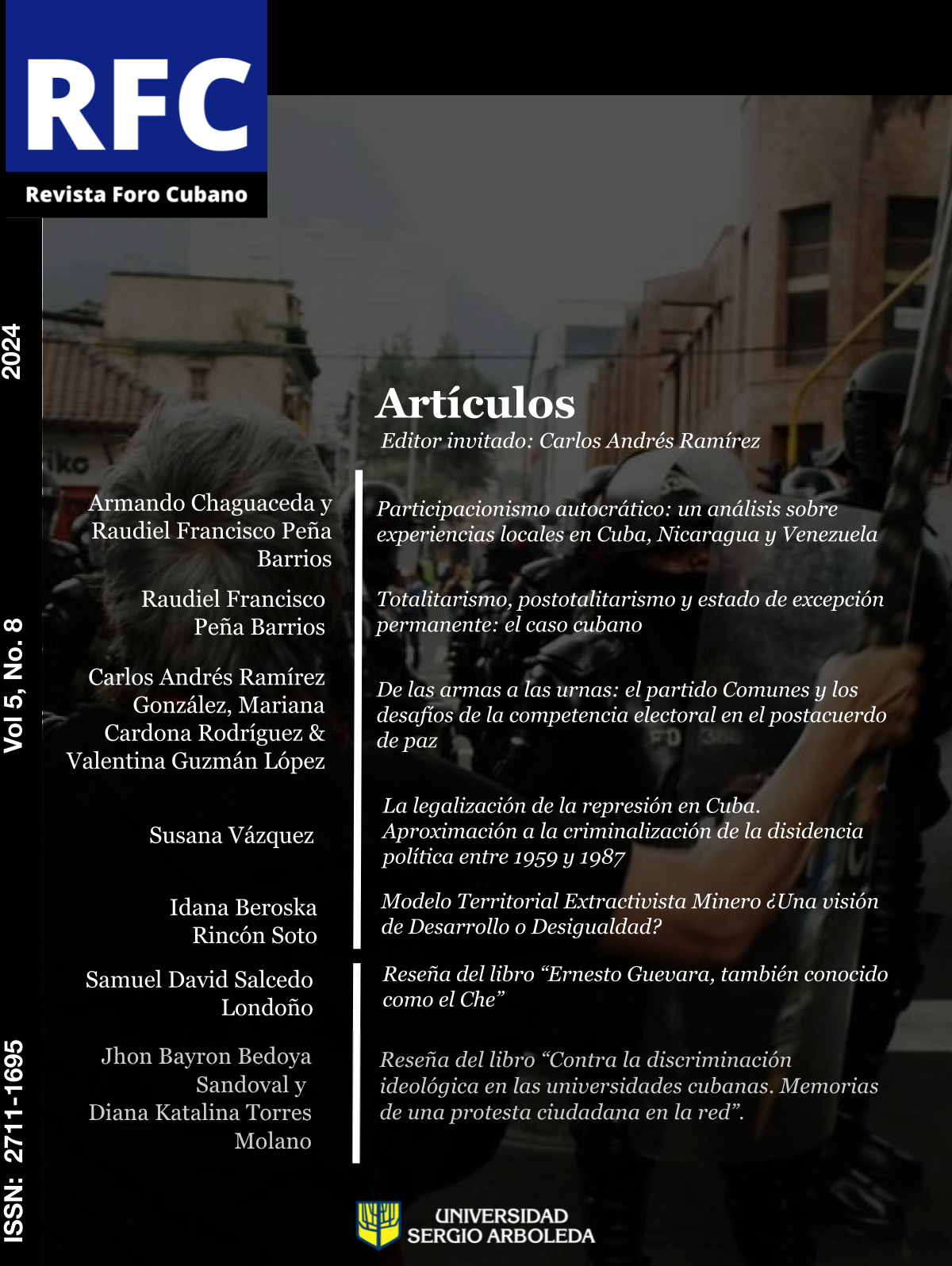Abstract
In this article we analyze the legal regulation and political practices, institutions and procedures associated with local experiences of participation (with assembly contents and citizen composition) in Latin American autocratic contexts. As case studies, Cuba, Nicaragua and Venezuela are examined, with respect to which their similarities and differences in terms of political regime and party system have been considered. It is argued that although it is true that these experiences are legally defined as spaces that encourage the political participation of citizens, in reality they fulfill the function of legitimizing authoritarianism in the cases studied.

This work is licensed under a Creative Commons Attribution-NonCommercial-NoDerivatives 4.0 International License.
Copyright (c) 2024 Journal Foro Cubano


